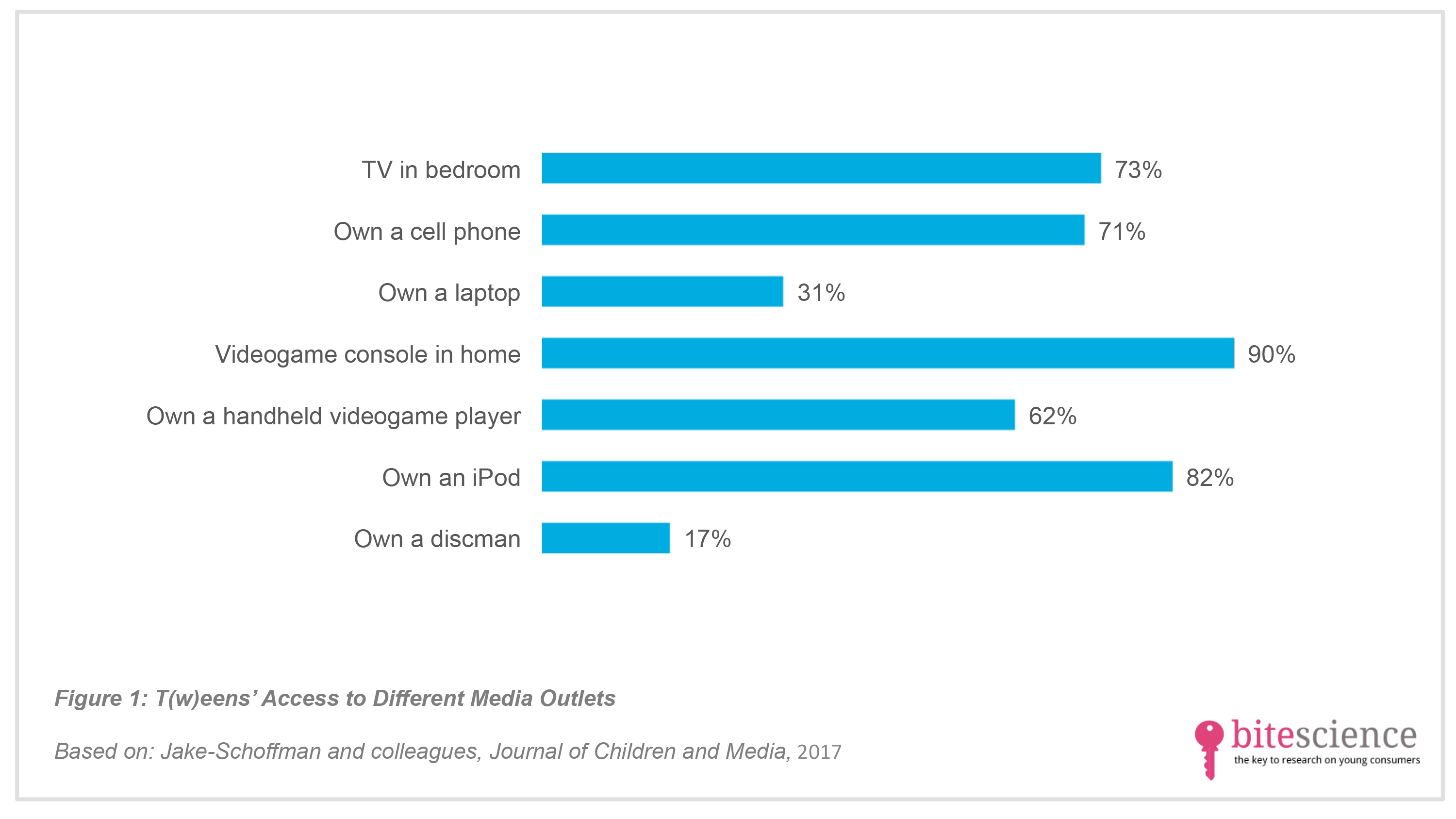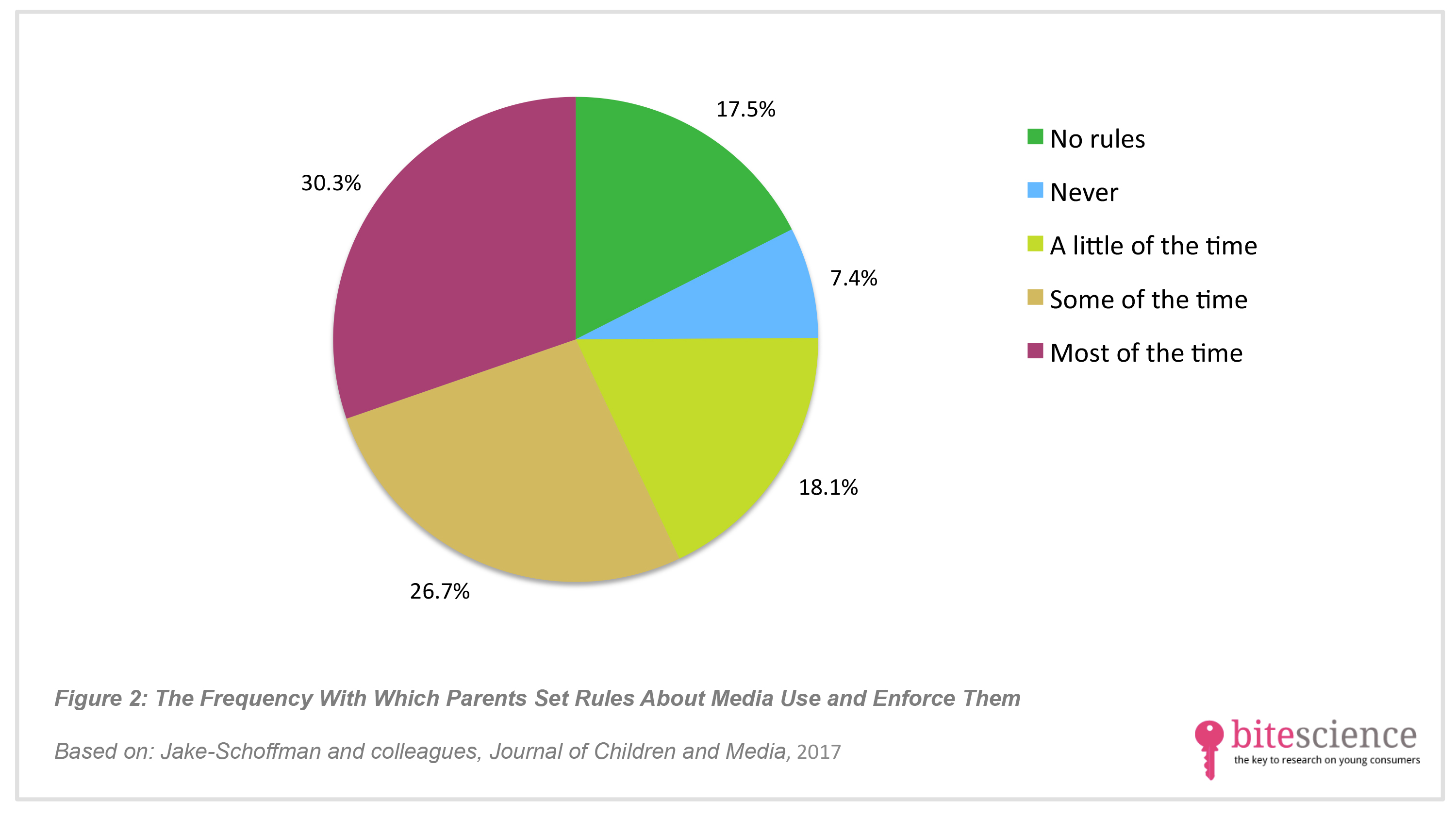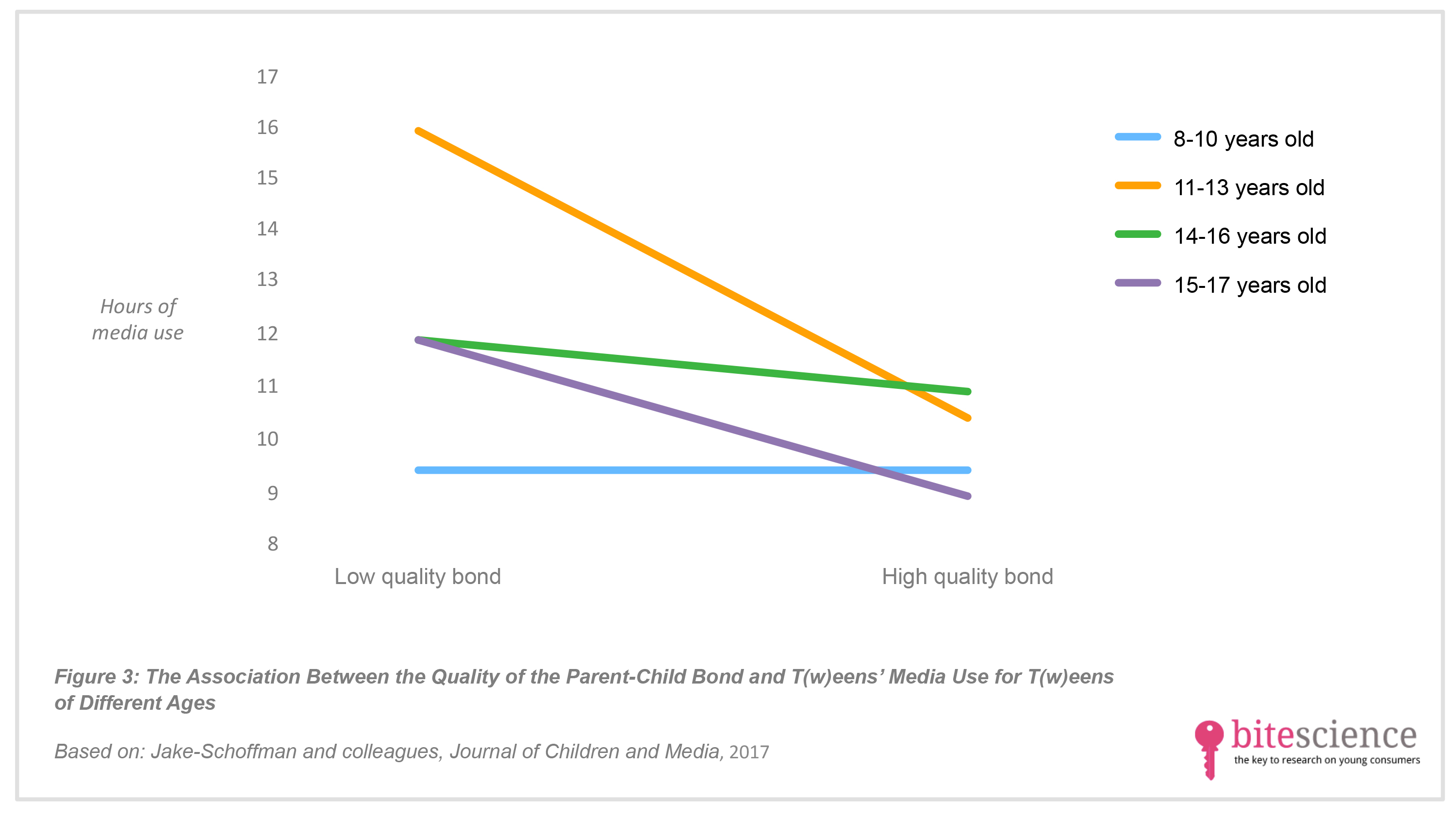
T(w)eens Who Get Along Well With Their Parents Use Media Less Often
T(w)eens’ excessive media use causes many parents to wonder how to get a grip. Supervision and rule setting are common strategies, but the quality of the bond with their child could also play a role. A study in the Journal of Children and Media shows that t(w)eens who get along well with their parents use less media in their free time than those who have a low quality parent-child bond.
Take aways
- T(w)eens who have a close bond with their parents spend less of their free time using media than those who do not get along with their parents that well.
- This is especially true for 11-13-year-olds, as compared to younger and older children.
- Interventions targeting teens’ excessive media use should take place around the ages of 11-13 years, and could focus on enhancing the quality of the parent-child bond through positive communication and family cohesion.
Study information
The question?
How does the quality of the parent-child bond relate to t(w)eens’ media use?
Who?
1727 8-to-19-year olds (mean age = 13 years old; 49% girls; 54% was White, 15.5% African American, 18.5% Hispanic, 4% Asian, and 8% had other ethnical backgrounds)
Where?
United States
How?
This study was part of a national survey taken among students from grades 3 through 12 during the school year of 2008-2009. T(w)eens answered questions about their age, quality of the bond with their parents (how well they got along with them), and media use (only recreational, so not including activities to complete homework). Media use was calculated as the total time spent using media during the previous day (such as watching television, going to the movies, listening to music, and browsing the Internet). T(w)eens also answered questions about their parents’ media rules.
Facts and findings
Media use and media rules
- On average, t(w)eens spent 10 hours per day using media for recreational purposes.
- They had access to an average of 4 media outlets, most often a videogame console (Figure 1).
- Teens (aged 11-13 and 14-16 years old) used more media than tweens (aged 8-10 years old).
- Close to a third of the t(w)eens (30%) said that their parents enforced media rules most of the time, whereas 18% reported that their parents did not set any rules at all (Figure 2).
- Interestingly, having some media rules related to fewer hours of media use than having a lot of rules.
Parent-child bond and media use
- With respect to the quality of the parent-child bond, a slight majority of the t(w)eens (51%) said they got along well with their parents.
- T(w)eens who reported higher quality of the bond with their parents also reported less media use. For every point the parent-child bond increased, media use decreased by 54 minutes.
- When looking at these results for different ages groups specifically, this link was strongest for teens in the ages of 11-to-13-years (Figure 3). Teens this age who reported a low-quality bond, spent 16 hours per day using media, whereas teens who had a high quality bond spent around 10.5 hours per day on media use.
- Critical note: Based on this study, no conclusions can be drawn about cause and effect. It was not examined whether excessive media use leads to a poor parent-child bond, or whether impairments in this bond cause excessive media use.
- Critical note: The data for this study were collected almost ten years ago and newer forms of media now exits. However, as t(w)eens’ media use is still high, it is likely that this will not affect the pattern of results.


